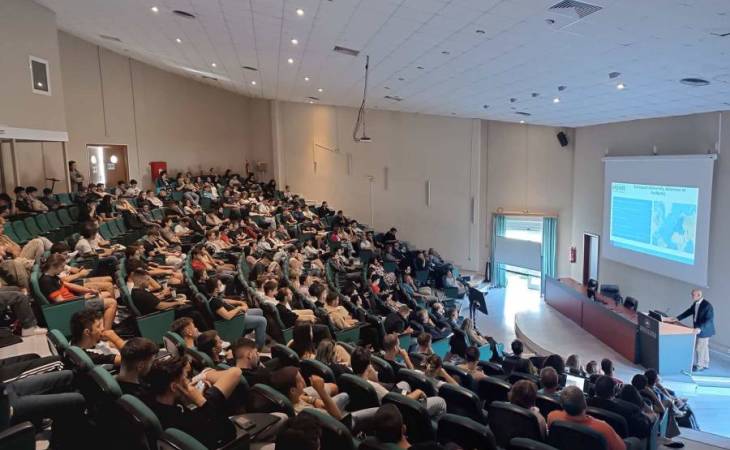Utilizing data and physical constraints in machine learning enabled computational solid
mechanics and multiphysics
Nikolaos Bouklas
Assistant Professor at Cornell University
Abstract
Machine learning techniques are gearing up to play a significant role in the field of computational solid mechanics and multiphysics, enabling the integration of experimental data and physical constraints towards data-driven constitutive laws, acceleration of computational techniques for multi-scale
modeling, and new paradigms for the solution of forward and inverse problems, to name a few. This talk will cover recent advancements in the aforementioned areas: I) A physics-informed data-driven constitutive modeling approach for isotropic and anisotropic hyperelastic materials is developed using
tensor representation theorems. The trained laGPR surrogates are able to respect physical principles such as material frame indifference, material symmetry, and the local balance of angular momentum.
Overall, the presented approach is tested on synthetic data from isotropic and anisotropic constitutive laws and shows surprising accuracy even far beyond the limits of the training domain, indicating that the resulting surrogates can efficiently generalize as they incorporate knowledge about the underlying physics. II) Finally, a data-driven framework is presented based on the usual offline-online paradigm for solving PDEs, focusing on complex microstructures in the context of both forward and inverse problems. The framework is developed based on conditional and patch-based generative adversarial networks (GAN), typically used in image/video analysis. Here we will focus on forward and inverse problems, as well as an extension to time dependent problems in the context of poroelasticity.
The Department of Electrical and Computer Engineering (DECE) of the University of Thessaly, and specifically the Creative Technologies Learning Lab (CTLL), organised an educational activity focused on biomimicry and sustainability-oriented… more










